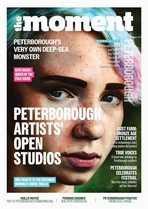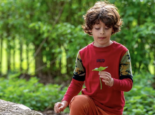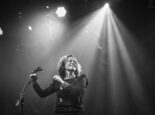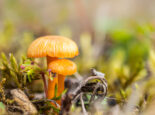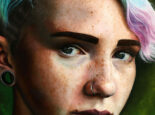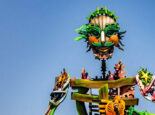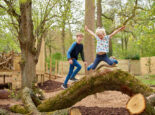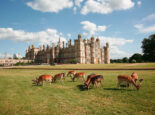Kate Rusby – Queen of the Folk Scene
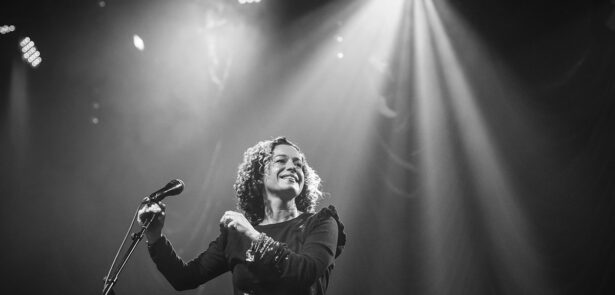
Ebullient, multi-talented and formidably hard-working, folk music super-star Kate Rusby is back on tour with her collection of lockdown songs, affectionately labelled ‘The Singy Songy Sessions’. We caught up with her to find out what inspires her, what drives her – and what her music means to her...
You’ve become a veteran of the folk scene, having been gigging, writing and putting out albums for several decades. To use a Taylor Swift analogy, what’s been your favourite ‘Era’ so far?
It’s amazing how visual media has become so accessible, because of the internet and platforms like YouTube. People have posted videos from years and years ago, little snippets that capture moments in time. It’s quite funny to dive into those things – for instance, when we were putting together the set-list for the new Sessions tour, I wanted to include at least one song from each of the 22 solo albums I’ve done (excluding the seven Christmas ones). While doing the research, I remembered, “Oh, I did a song like this on my first solo album, Hourglass, all those years ago.” But then I realised that over time, I had made subtle alterations to it. I turned to YouTube to see if anyone had uploaded it, and that enabled me to revisit that particular moment. It’s strange, in a way, to look back – I still very much feel like the same person, I have to be honest, I don’t feel any different! I still feel incredibly lucky to be doing what I do, especially after all this time. It’s been 32 years now since I started touring, and making music and albums, and sometimes, reflecting on it all can be a bit overwhelming. You realise just how quickly time has passed, and it’s absolutely crazy because I still feel like the same old me.
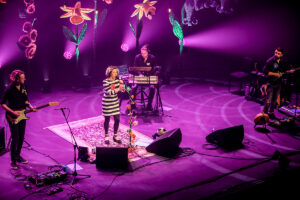 How did it all start, and how was it navigating those early days?
How did it all start, and how was it navigating those early days?
My dad actually ran our record company up until 2020 – we set it up when I started recording albums so I could keep ownership of all my work. That was always really important to us, and we also thought, “How hard could it be?”, and decided to give it a go! At the time, my dad was lecturing at Leeds College of Music in brass instrument repair. But about the time my career was picking up momentum he was looking for something new to do, and he was also a sound engineer – he had his own sound company and would work on folk festivals around the country. As kids, we were brought up going to festivals most weekends in the summer, so it seemed fitting, and both my parents had been involved in the folk music scene, which is how they met. They understood it, and had also heard warnings from friends who worked in music about being careful with contracts and not signing away your life. For years, it was just my dad and me making all the decisions – whenever we came to a fork in the road we would choose a path, and if it didn’t work we would go back and try again. It was all about learning from our mistakes. My dad used to ask me why I wasn’t ambitious like other people, but I’m just not that kind of person – I’m more of a rolling stone! While my friends at school were deciding what subjects to take for A-levels, I was asking them how they knew what they wanted to be. I had no idea, so I just took the subjects I enjoyed. And now, here we are 32 years later.
So you were only 18 when you did your first gig?
Actually, I found evidence that I had done one the year before, a small one, but I had forgotten about it! My dad had taught me about three chords on this massive guitar that I could hardly wrap my arms around, which we were borrowing from somebody, and I would sit for hours figuring out songs using those chords, and if I didn’t know a chord, I would make one up that fit. I begged my parents for a piano and taught myself the chords to accompany songs, because I already knew so many songs from my upbringing. Anyway, I was in our garage playing the piano – it had been banished there because my dad had got it from somewhere, probably a pub where it was no longer wanted, and it smelled like second-hand beer and cigarettes! – when a friend of ours who was running the local folk festival popped her head in and said, “You’re getting good at that. Do you fancy doing a half-hour slot at the festival?” I kind of hesitated but ultimately said, “Yeah, okay.” It wasn’t a moment of breakthrough for me – I just didn’t want to say no because she was a friend of my parents! And then she left, and I thought, “Oh no, why did I say that?” When I actually performed that slot at the festival, which was the Holmfirth Folk Festival, I vowed to never do it again. It was the scariest thing ever – I could hardly walk on stage because my legs were so wobbly. I felt so sick. But then, ten minutes later, another festival organiser came up to me and said, “Hey, I’m running a festival in a couple of months – I really enjoyed your performance and we have a slot available. Would you fancy doing it?” And again, I said, “Okay…” That’s when I realised I needed to stop saying
yes to everything! Looking back, I honestly feel like it chose me, rather than the other way around. I started doing slots at festivals and then performing at folk clubs as well, starting with floor spots. It grew from there, and all of a sudden, the folk club wanted to give me my own gig. My dad handled all the logistics because I was so bad at it. I mean, when I was young, I did so many gigs and just… forgot to get paid because it wasn’t on my mind!
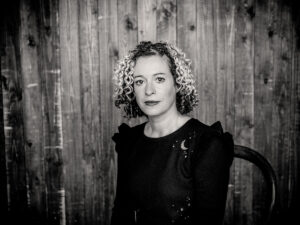 One of the loveliest and most entertaining aspects of folk music is that you don’t just get music, you often get a proper, full-on short story in the form of the lyrics. What’s your process when combining writing music and writing, essentially, short fiction?
One of the loveliest and most entertaining aspects of folk music is that you don’t just get music, you often get a proper, full-on short story in the form of the lyrics. What’s your process when combining writing music and writing, essentially, short fiction?
I remember doing my music GCSE at school, and one of the things we had to do was compose some of our own pieces – because I was fascinated by storytelling I had already been experimenting with music and songwriting. People have often asked me how I remember the words of songs with multiple verses, but I’ve always seen songs as mini-films, so it’s easy for me to remember the next verse because I know the story and characters. I get invested in their journey and the action that takes place, and folk songs and stories usually provide a conclusion, which I love. When we were travelling to festivals, my parents would sing these songs to my siblings and me in the car, to keep us from fighting! We would even work out little harmonies without even realising it, but I was the most fascinated with it. There was a time when I was old enough to go on my own into Barnsley – it only cost two pence to travel anywhere in South Yorkshire on the bus if you were under 16 – so I would earn my pocket money then go to the library to borrow as many cassettes as I could. I would take them home, go to my bedroom, and listen to them over and over again. I discovered artists like Lyle Lovett, Nanci Griffith and Mary Chapin Carpenter, who all influenced my songwriting in different ways.
I remember talking to Steve Knightley from Show of Hands after a gig once. I had already written some songs but I didn’t have the confidence to perform them. He suggested starting small and making little changes, which I had already been doing. So I started introducing my own songs to gigs, and gradually gained more confidence It felt like the pressure was off because my songs were story-based and fit well with the other songs I was playing. Over the years, my songwriting has evolved and doesn’t sound exactly like traditional folk songs, but it’s because I’ve spent so much time with my own music while also immersing myself in the genre.
Bringing us up to the present, tell us a little about your new tour and what it evolved from.
When we went into lockdown in March 2020, I went into overdrive because that’s just the way I
am. Whenever disaster strikes, wherever we are, I feel this need to take action. Right away, I start trying to cheer people up, and feed them! We were at home thinking, “Oh my, people are terrified! I’m terrified! But what can we do?” I wanted to lighten the mood, so my husband Damian and I – and fortunately he plays guitar and various other instruments in my band – decided to create a regular event in our living room. We wanted to give people something to look forward to, so we thought of starting the ‘singy songy sessions’. We did about 22 sessions and released them weekly on Facebook – they’re still available on my YouTube channel for those who want to watch. Each week, we would choose a song and I would explain why I loved it or its significance, whether I had written it or not. We also had a show-and- tell table where we shared things we had been doing that week – and at that stage in all our lives it was stuff like trying new cheeses, that kind of thing! We really enjoyed the sessions, and it was a special way to connect with my audience even though we couldn’t tour. Week after week, our audience grew, and viewers would write to us in the comments, sharing what the songs meant to them. Some mentioned that their children were born to a certain song, or was playing at a special time – it was heart-warming to see how our music fitted into people’s lives. It had been a while since I performed solo or with a smaller line-up, and many people suggested that I should do a tour like this – a different kind of experience compared to what I’ve been doing more recently. I have already started working on a new album that will be released later this year, so we thought, let’s organize some gigs and embrace this smaller format while we can. It only took four years to get here!
Kate Rusby is at the Cresset, Peterborough, on Thursday, 9 May 2024. Visit cresset.co.uk or phone 01733 265704 to book tickets.


